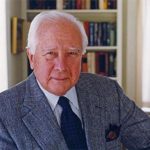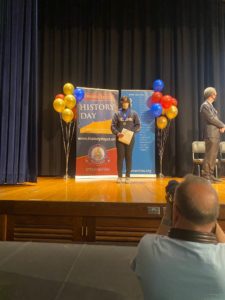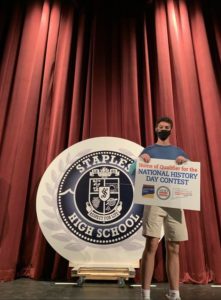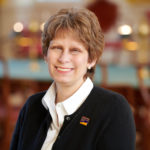Five years ago, “citizen historians” in Connecticut were recruited to examine how the Holocaust was covered in local newspapers. The project was hosted by the U.S. Holocaust Museum and it was called “History Unfolded.” This is one of many ways citizen historians contribute to our knowledge about the past. Citizen historians don’t have jobs as professional historians. Often, they work at something else and then do their research, writing, or speaking on their own time. Usually, they do not have advanced degrees like MAs or PhDs in history.
The late David McCullough, the author of books on John Adams and the Wright Brothers, among others, and a two-time winner of the Pulitzer Prize and the National Book Award as well as the Presidential Medal of Freedom, had only a Bachelor’s degree in English. While he eventually made his living writing history, he started out as a citizen historian while working for magazines. McCollough believed in the civic importance of history, saying, “History is a guide to navigation in perilous times. History is who we are and why we are the way we are.” The late James Billington, Librarian of Congress, called McCullough the “citizen chronicler.”
Programs like Connecticut History Day give middle and high school students the experience of researching original topics and creating historical projects. They become citizen historians, many of whom later become involved in the history world, through volunteering in museums, freelance writing, or even becoming PhDs in history.
“I think that we definitely have the opportunity to make connections that other people haven’t. I think the best example of this is this past year when we were researching the CIA and their involvement in popularizing modern art during the 50s through the 70s,” Clarissa Halpryn explained. “[W]e came across a really weird overlap between government officials (CIA agents, politicians, etc) and members of the executive board of the Museum of Modern Art. As we looked into it more, we realized that MoMA wasn’t necessarily a CIA front, but there was a big connection that wasn’t really discussed in any of our research.”
It’s not unusual for citizen historians to find things professional historians have not written about or to see the events in a different light. “I think the best part of History Day is being able to make connections and finding that piece of information that just makes everything click. When we were looking for a topic a few years ago… we found that the two were actually connected, and that’s what we did our project on. I remember being really excited to keep on researching and learning about our topic, and it’s definitely a big reason for why I like History Day,” Clarissa said.
Citizen-history often has a connection to making change in the contemporary world. Zachary Brody told us, “[M]y research uncovered many studies, articles, and books about all different aspects of cigarette advertising in the 20th century. Through this process I learned how to selectively narrow my research focus; thoroughly & objectively investigate & gather evidence; analyze information; consider different perspectives and develop arguments.” Zachary zeroed in on an important aspect of his subject. “In my case, I narrowed my focus to the cigarette industry’s targeting of women and children in its advertising, and its use of misleading doctor endorsements and false claims to promote sales.”
Give Connecticut History Day a try!
Looking to dig deeper into some of the Connecticut #FrontiersinHistory topics? Check out this Historian Chat with Connecticut History Day State Coordinator Rebecca Taber!
|
State Coordinator
Rebecca Taber Connecticut State Coordinator info@historydayct.org (860) 522-6766 x.11 |
—




